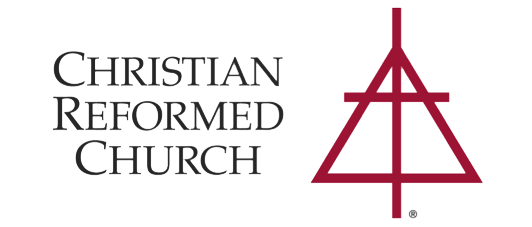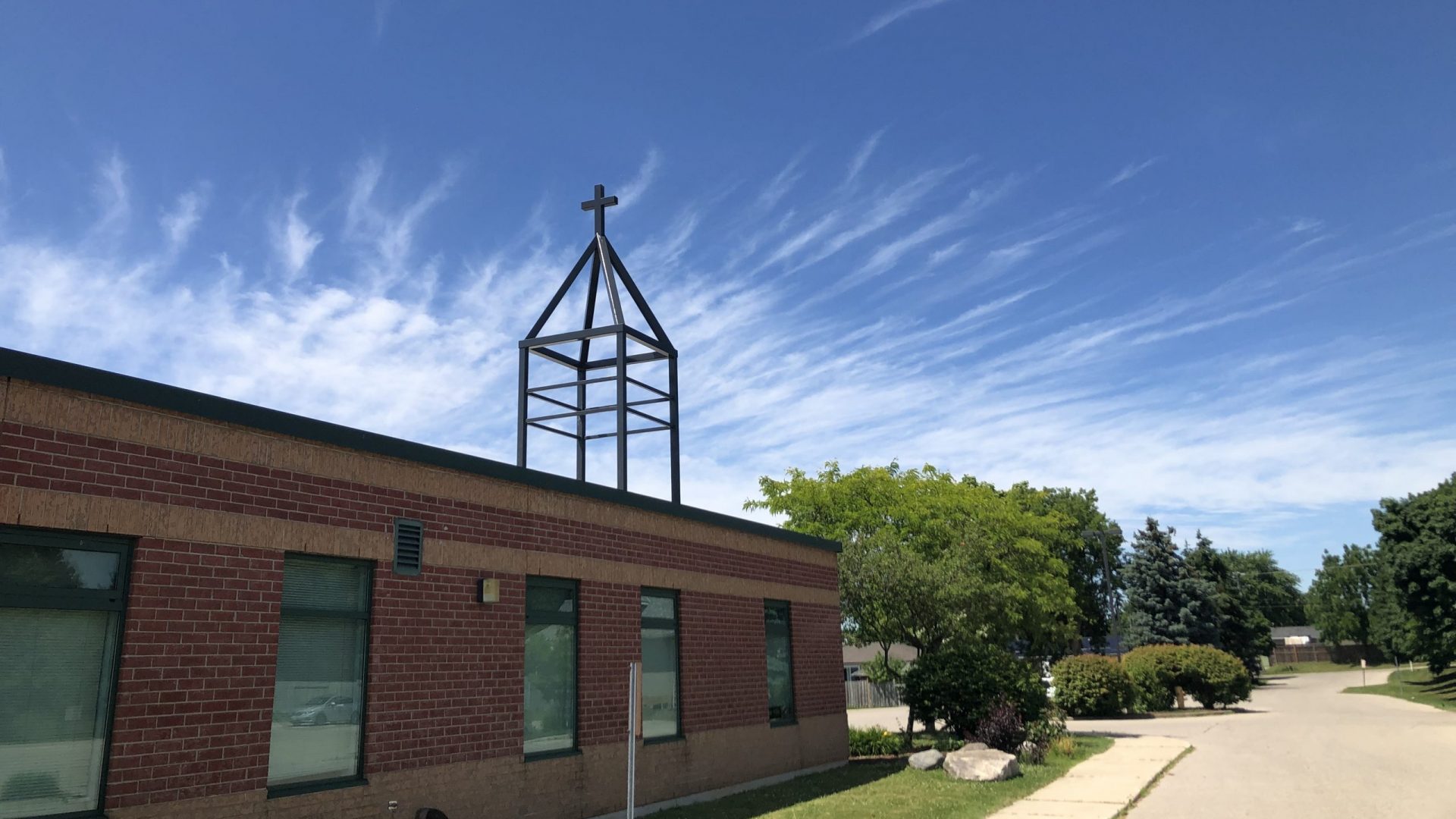WHAT WE BELIEVE

Who We Are
Fellowship is part of the Christian Reformed Churches of North America. Our roots identify and influence what we believe and what we do as a church. We are Christian because we believe Jesus Christ is God's only Son, our Lord and that the Bible is a true testament of how Christ's death and resurrection has set us right with God. As Christians, we acknowledge Jesus as our Lord and Saviour. Our relationship with Christ is what makes us Christians, recognizing we are not perfect people but knowing we are made perfect in Christ. We are reformed because we're part of that historic branch of the Christian church that follows the teachings of 16th-century reformer John Calvin, who struggled to return Christianity to its biblical roots. we are a church because we believe God has called us together to be a people who belong to him and live for him. We are meant to be a community of believers who are able to worship, help, encourage, and come alongside one another.
Our Mission & Vision
Fellowship 3x3 Connections:
Connect with God - Know, Love, Live
Connect with Others - Authentic, Mutual, Discipleship
Connect in Service - Time, Treasure, Talents
What We Believe
God. We believe in one eternal, knowable, sovereign God. He knows all things and oversees all things. He is merciful, just, loving, holy, great in power and good in purpose. His glory is our chief concern.
(Deut. 6:4, Isa. 45:5-6, 1 Tim. 1:17, Heb. 1:1-2, Dan. 4:34-35, Psa. 139:1-4, Mt. 10:29-31, Exod. 34:6, Acts 17:31, 1 Jn. 4:8, Rev. 4:8, Ps. 147:5, Rom. 8:28, 1 Cor. 10:31)
Trinity. We believe in one God who exists in three Persons: Father, Son, and Holy Spirit. All three are uncreated, coeternal, and equal in power, glory, and honour. They are rightly worshipped as the one true God–three in one, and one in three.
(Mt. 28:19, Rev. 22:13, Acts 5:3-4)
Scripture. We believe, that while God has revealed himself in his creation, he has spoken to us most clearly in his word. The Scriptures of the Old and New Testaments are breathed out by God, holy, complete, and entirely without error in the original manuscripts. The Bible is our final authority in life, doctrine, and godliness.
(Ps. 19:1-6, Rom. 1:18-20, Jn. 14:25-26, Deut. 6:6-7, 2 Tim. 3:16, Jn. 10:35, 2 Pet. 1:20-21, Mt. 4:4, 2 Pet. 1:3-4)
Creation. We believe God created the entire universe out of nothing. Man and woman were the crown of God’s good creation, being created in his own image. As image-bearers, we were created to worship God and reflect him in true knowledge, righteousness, and holiness.
(Gen. 1:1, Heb. 11:3, Gen. 1:26-27, Eph. 4:22-24, Col. 3:9-10)
Fall. We believe that Adam and Eve, our first parents, rebelled against God and plunged themselves and all their offspring into ruin. Because of Adam’s sin, we are all guilty sinners. We come into the world with corrupt natures through and through. We are spiritually dead until God makes us alive in Christ.
(Gen. 3:1-19, Rom. 5:12-21, Ps. 51:5, Jn. 6:44, Rom. 3:10-18)
Person of Jesus Christ. We believe Jesus of Nazareth was and is the Christ, the Messiah, the Anointed One. We believe he is also the Son of the Living God. He is fully man and fully God. He was born of the virgin Mary, lived a perfect life, taught the way of God’s kingdom, worked miracles, suffered, died, and (bodily) rose again.
(Mt. 16:16, 1 Tim. 2:5, Titus 2:13, 1 Cor. 15:1-8)
Work of Jesus Christ. We believe Jesus Christ lived a perfect life and died a shameful death that we might be counted righteous and forgiven of our sins. He was our sacrificial substitute. He defeated the devil, removed our guilt, and became a curse for us, bearing the weight of God’s wrath.
(2 Cor. 5:21, 1 Pet. 3:18, Rev. 12:9, Isa. 53:4-6, Gal. 3:13, 1 Jn. 1:8-2:2)
Salvation. We believe that we are justified–declared righteous before God–through faith alone in Christ alone by grace alone. The only way to be adopted into God’s family is through union with his Son, Jesus Christ.
(Gal. 2:16, Jn. 14:6, Eph. 1:3-6)
Holy Spirit. We believe the Holy Spirit, working through the word, supernaturally converts (regenerates) the hearts of God’s people by making alive what was spiritually dead. The Spirit convicts us of sin, leads us to repentance, causes us to grow in holiness, seals us for the day of redemption that we might be assured of our salvation, and equips us with spiritual gifts for the building up of the body.
(Titus 3:5, 1 Pet. 1:23, Jn. 16:8-11, Eze. 36:26-27, 2 Cor. 3:18, Eph. 1:13-14), 1 Cor. 12:7)
Church. We believe the church is the communion of God’s people drawn from every tribe, language, people, and nation. This invisible body, of which Christ Jesus is the head, exists locally, and imperfectly, as the visible church. Jesus Christ has given his church two sacraments: Baptism and the Lord’s Supper. The CRC employs infant baptism (for children of believing parents) as well as adult baptism (for adults who join but have not previously been baptized in a Christian church); an adult who is baptized is also called upon to make a public profession of his or her faith in Christ.
(Eph. 2:11-12, Rev. 5:9-10, Mt. 28:19-20, 1 Cor. 11:23-26)
Marks and Mission. We believe God’s people should be marked by Christlikeness, prayerfulness, joyful obedience, love of God and love of neighbour. We believe the mission of the church is to make disciples by declaring the gospel of Jesus Christ in the power of the Spirit to the glory of God the Father. As salt and light, we seek to save the lost, love others in word and deed, work for righteousness and justice, and care for the hurting and needy.
(Eph. 5:1-2, Rom. 12:12, John 14:15, Mt. 22:37-44, Mt. 28:19-20, Mt. 5:13-16, 1 Cor. 9:19-23, 1 Pet. 4:11, Amos 5:24, 1 Jn. 3:16-18)
Last Things. We believe Jesus Christ will return to earth personally, visibly, and bodily as King of Kings and Lord of Lords. At his appearing the dead shall be raised and the living and the dead will be judged. The wicked and unbelieving will be consigned to eternal punishment. Those belonging to Jesus will have eternal life in the new heavens and the new earth and live in ever-increasing joy to the glory of God.
(Acts 1:11, 1 Cor. 15:20-28, Rev. 20:10, Rev. 14:15, Mt. 25:21, Rev. 21:1-5)
CREEDS & CONFESSIONS
We also teach using the creeds and confessions of the Christian Reformed Church. These historical pieces of liturature are based soley on the Bible. They are a concise and unified way of understanding our beliefs and the way they relate to our world; unchanging truths in an ever changing world.
Creeds
Creeds are ecumenical (statements agreed upon accross muliple denomination) and date back to the early church.
1. The Apostles' Creed This creed is called the Apostle's Creed not because it was written by the 12 apostles, but because it contains a brief summary of their teachings.
2. The Athanasian Creed – This creed consists of two parts, the first sets forth the orthodox doctrines of the Trinity, and the second deals primarily with the incarnation and the two natures of Jesus Christ.
3. The Nicene Creed – This creed, also known as the Nicaeno-Constantinopolitan Creed, is a statement of the orthodox faith of the early Christian church in opposition to certain heresies, especially Arianism.
Confessions
As a Reformed congregation, we stand on three confessions written at the time of the Protestant Reformation:
1. The Heidelberg Catechism – This confession has 3 parts: Our sin, our salvation, and our service to God. It begins with a personal confession that "our only comfort in life and earth is that we are not our own, but belong, body and soul, to our faithful Savior Jesus Christ." We use the Heidelberg Catechism as a tool both in teaching and preaching.
2. The Belgic Confession – The Belgic Confession was written in 1561 as a statement of faith to defend Reformed Christians against persecution. It covers such doctrines as our view of Scripture, the divinity of Christ, our responsibility to the government, and the end times.
3. The Canons of Dort – The Canons of Dort explain what have been called the 5 points of Calvinism: Total Depravity, Unconditional Election, Limited Atonement, Irresistible Grace, and Perseverance of the Saints.
You can read more regarding out positions as it relates to different areas of life and faith here: Position Statements

